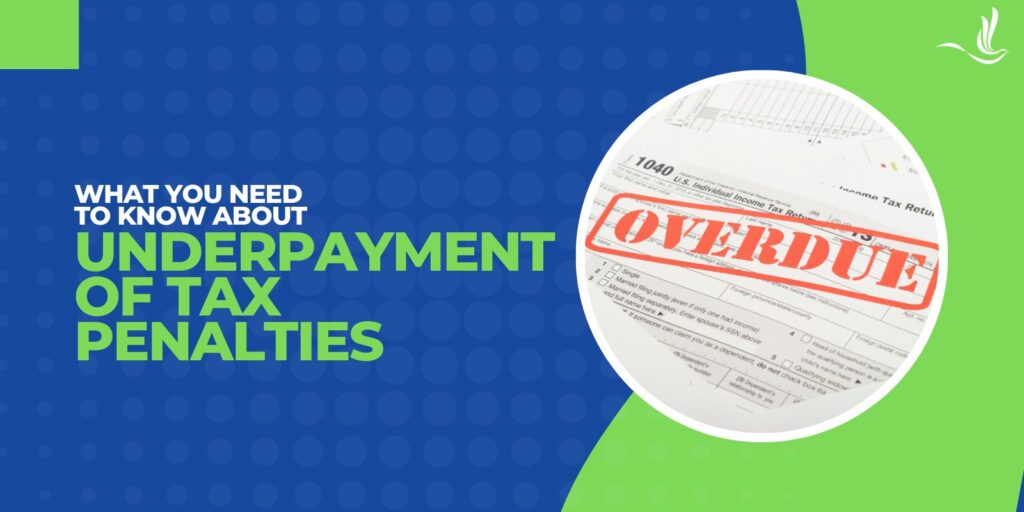
Taxes are an essential part of a functioning society, providing the government with the necessary funds to provide public services and support various programs. However, when it comes to paying taxes, many individuals and businesses may find themselves making mistakes or underestimating their obligations. This can lead to tax underpayment, a situation that often incurs penalties. In this article, we will delve into tax underpayment penalties, why they exist, and how to avoid them.
What is Tax Underpayment?
Tax underpayment occurs when an individual or business fails to pay the full amount of taxes they owe by the due date. This can happen for various reasons, such as underestimating income, miscalculating deductions, or failing to make estimated tax payments. When you fail to meet your tax obligations fully, you may be subject to penalties.
Why Do Tax Underpayment Penalties Exist?
Tax underpayment penalties exist for several reasons:
- Revenue Generation: One of the primary reasons for these penalties is to generate revenue for the government. While penalties act as a financial disincentive for underpayment, they also help to recoup some of the lost tax revenue.
- Fairness: Tax underpayment penalties aim to create a level playing field. Those who accurately and timely pay their taxes should not be disadvantaged by those who do not. Basically, penalties encourage compliance and reduce the burden on law-abiding taxpayers.
- Deterrence: The threat of penalties serves as a deterrent to discourage taxpayers from underpaying their taxes intentionally or negligently.
How Do Tax Underpayments Work?
Remember the IRS requires you to pay taxes as you’re earning income. If it’s not, underpayment penalties will likely apply. The rule of thumb is that if your adjusted gross income (AGI) is $150,000 or less, then you must pay the lesser of 90% of this year’s tax or 100% of last year’s. You can do this by figuring out how much taxes are being withheld from your paychecks. From here, you’d pay the remainder in estimated tax payments if necessary. If you earn more than $150,000, then you must pay the lesser of 90% of this year’s tax or 110% of last year’s.
In general, if you owe more than $1,000 when you calculate your taxes, you will likely pay an underpayment penalty. Here’s how tax underpayment penalties typically work:
Assessment of Underpayment
Tax underpayment penalties are assessed when the taxpayer either doesn’t pay the full amount of taxes owed by the due date. It also happens when a taxpayer fails to make accurate estimated tax payments throughout the year. This can result from underreporting income, not withholding enough taxes throughout the year, overstating deductions, or simply not paying the required amount.
Calculation of Penalties
Penalties are usually calculated based on the amount of the underpayment, the length of the underpayment period, and the applicable interest rates. Tax underpayments are subject to a failure to pay penalty. At this time, this is 0.5% of the tax owed and is paid each month or partial month that the tax goes unpaid. However, the failure to pay penalty will not exceed 25% of your total unpaid tax balance. In addition to penalties, you will also pay interest on your balance owed. While interest rates can change, the current IRS interest rate for is 7% for individuals and 9% for corporations.
Avoiding Tax Underpayment Penalties
To avoid tax underpayment penalties, follow these best practices:
- Maintain Accurate Records: Keep thorough records of your income, expenses, and deductions to ensure accurate tax calculations.
- Estimate Taxes Correctly: Make accurate quarterly estimated tax payments if you’re self-employed or have irregular income.
- Consult a Tax Professional: Seek the advice of a qualified tax professional to help you navigate complex tax issues and ensure compliance.
- File On Time: Always file your tax returns by the due date, even if you can’t pay the full amount. Filing on time can reduce late filing penalties.
- Communicate with Tax Authorities: If you’re facing financial difficulties and can’t meet your tax obligations, contact the tax authority to explore payment plans or alternative solutions.
Conclusion
Tax underpayment penalties are designed to encourage compliance with tax laws, promote fairness, and generate revenue for the government. However, these penalties can be avoided by accurately estimating and paying your taxes, maintaining good financial records, and seeking professional advice when necessary. By following these steps, you can navigate the complex world of taxes and minimize the risk of tax underpayment penalties. Remember, staying informed and proactive is the key to a trouble-free tax season. Optima Tax Relief is the nation’s leading tax resolution firm with over a decade of experience helping taxpayers with tough tax situations.
If You Need Tax Help, Contact Us Today for a Free Consultation